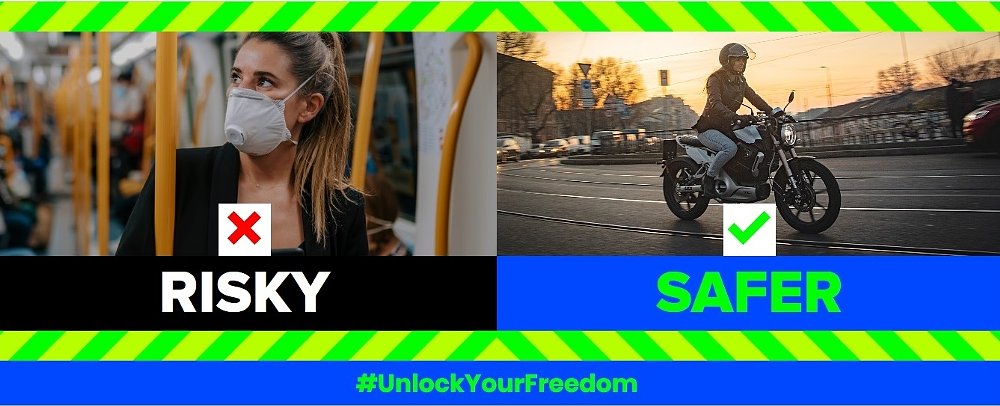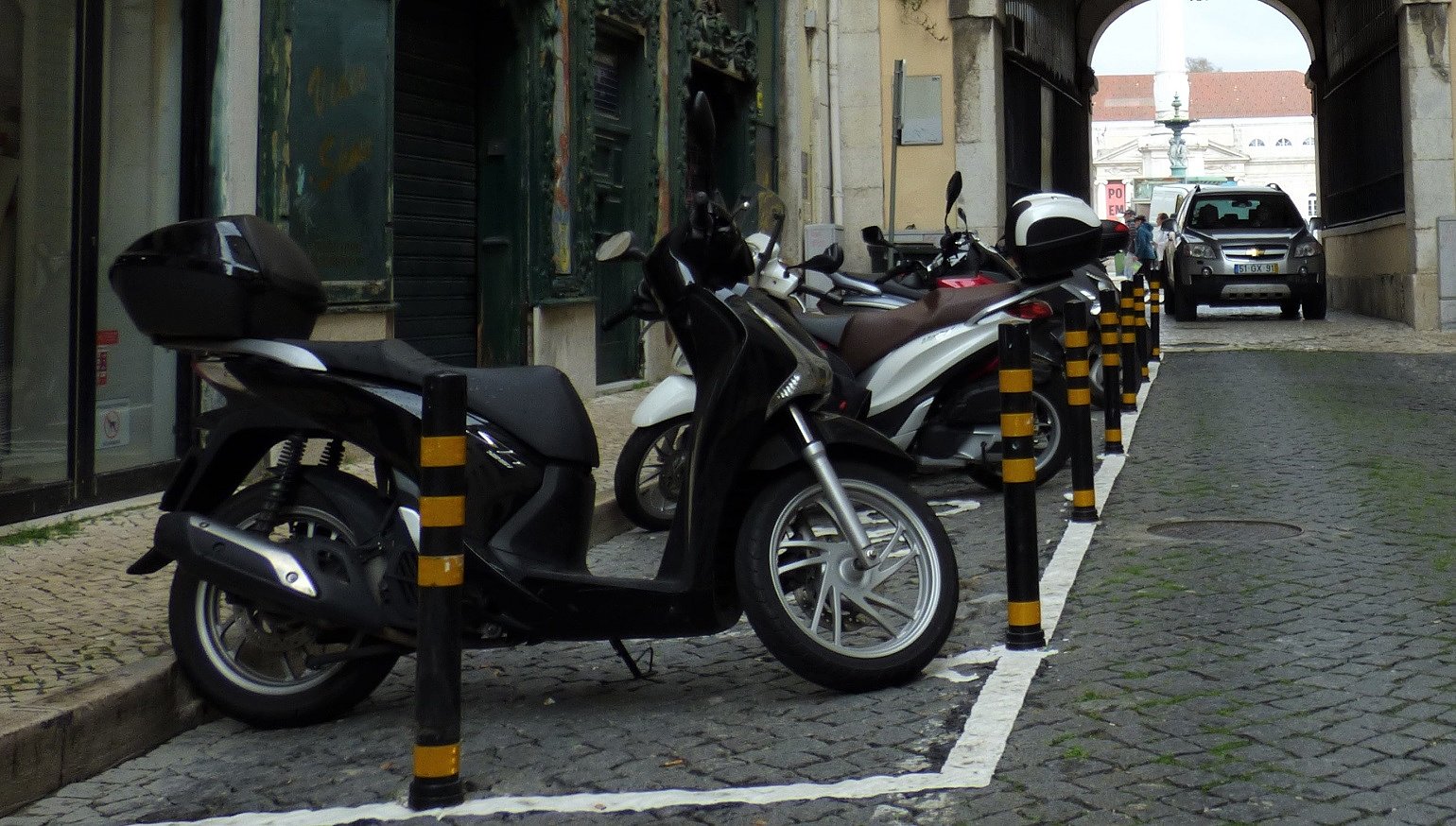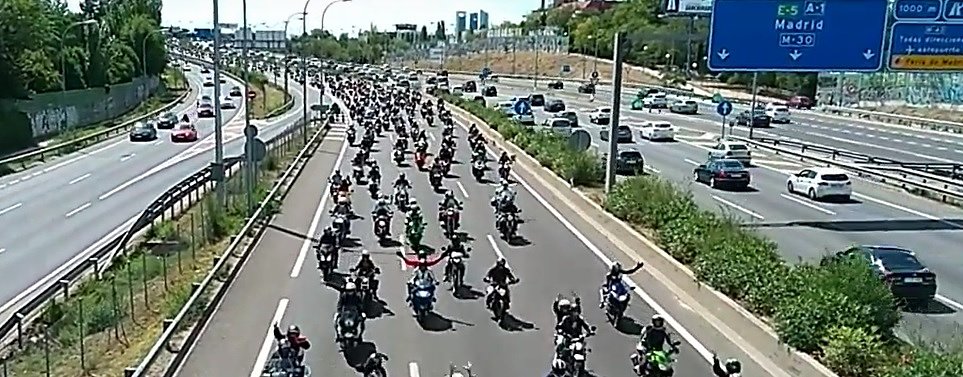The motorcycle industry trade association in the UK is using the pandemic — and government warnings about the risks of public transportation — to try to convert more people to riding motorcycles and scooters. Will the strategy work?
The MCIA, a trade association that says it represents "approximately 85 percent of the supply side of the industry" in the UK, set up a new web site and has been issuing promotional materials that contrast taking a bus or subway to get to work and riding a scooter or small motorcycle. The campaign is using the #UnlockYourFreedom hashtag.

A photo of a man wearing a mask on a subway train is labeled "fear." A photo of someone riding a small motorcycle on an urban street is labeled "fun." The other contrasts are "exposed" versus "isolated," "confined" versus "freedom" and "risky" versus "safer." That last one is the most unique part of all of this, to me. This is the first time I've ever seen motorcycling promoted as being the safer transportation option.
Today, as an industry - we launch #UnlockYourFreedom
— MCIA (@MCIATweets) June 3, 2020
To highlight Powered Two Wheelers as the perfect solution to the current Government advice of avoiding public transport. https://t.co/cgBr9Eu5YQ
Please join us in sharing the benefits of our industry far and wide. pic.twitter.com/iCcAN5FbeH
The web site provides information on the costs of motorcycling (or scootering) and has links to where people in the UK can get rider training. And while the motorcycle industry anywhere would like to see more people riding, for obvious reasons, that issue is actually a much bigger one in the United States, than in Europe, or other parts of the world, where much higher percentages of people ride powered two-wheelers.
That leads to an obvious question.
Could this approach work in the United States?
The Motorcycle Industry Council (MIC), the comparable industry association in the United States, has focused more on supporting dealers and others in the industry by, for example, backing efforts to have employees declared essential workers when restrictions were being put into place to slow the spread of the coronavirus. Communications aimed toward riders have focused more on the desire to be able to return to riding recreationally, whether on- or off-road, and to attend motorcycle events like rallies, bike nights and races once again.
That makes sense, considering what a tiny percentage of people in the United States use motorcycles mainly for commuting to work or other daily transportation. Getting the Americans who use public transportation for commuting, meaning residents of major cities, to switch to a scooter for getting to work is going to be a much harder sell, since they can't lane-split through traffic or find a parking spot when they get where they're going. More importantly, such a campaign would be flying into the stiff headwind of the cultural attitude toward motorcycles. The person crammed into a bus in London can look out the window any day and see someone zipping by on a scooter and pulling into free, motorcycle-only parking areas. A public transit commuter in Manhattan could go days without seeing anyone commuting to work on a scooter and a lifetime without seeing free, motorcycle-only parking.
As I've written before, the real impediment to expanding motorcycling in the United States is cultural. It's not seen as a normal way to get around, as it is in Asia or Europe. It's seen as something that's unusual, maybe a bit odd. Motorcycles are considered toys, fashion statements, or personal accessories. Here, they are closer to boats and RVs than a transportation tool like the family Camry or Grand Cherokee.
So I doubt that U.S. urban commuters are going to switch in numbers to motorcycles to avoid public transportation. If we are seeing any relevant migration, it's probably toward electric bicycles. Sales are strong and suggest that people are considering an e-bike as an option for getting around in the COVID-19 era. And with a bicycle, there's at least a chance that urban commuters will find dedicated free parking near their downtown office buildings.
Maybe the MCIA's strategy will work in the UK. Maybe we'll see a secondary effect later on in the states as a few people move on from electric bicycles to scooters or motorcycles, but I don't expect to see the pandemic reshape the U.S. urban motorcycle scene soon.








